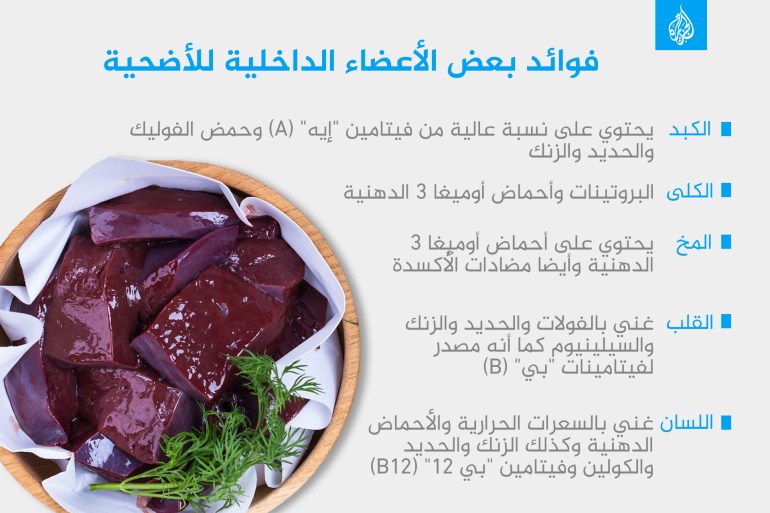Iron is an essential mineral for the manufacture of hemoglobin, which is part of red blood cells and helps transport oxygen through the body. In what foods is it found?
What is iron deficiency?
Writer Stephanie Sasuz, in her report published by the American "Goodhousekeeping" website, stated that when the body's iron stores are depleted, you may develop iron deficiency anemia.
This is due to a number of reasons, including:
Not consuming enough iron-rich foods
Iron is not absorbed by the body
severe bleeding
Loss of red blood cells and iron more than the body can compensate
Cases in which the body needs more iron than usual, such as pregnancy and lactation
Symptoms of iron deficiency include:
feeling tired
weakness
dizziness
Pale skin and nails
headache
Inflammation or swelling of the tongue
If you suspect that you have an iron deficiency, you should see a doctor, possibly undergo a blood test to determine if you are anemic, and then follow a treatment plan that includes a special diet or nutritional supplements.
Certain population groups are usually more susceptible to anemia, including pregnant women, infants, children, women with heavy menstrual bleeding, people with certain chronic diseases such as cancer and heart failure, the elderly over 65 years of age, and people who use blood thinners.
What is the recommended daily dose of iron?
The RDI for iron depends on a number of different factors, including age and stage of life, according to the Office of Dietary Supplements of the US National Institutes of Health.
Overall, most adult males need about 8 milligrams of iron per day, while adult women need 18 milligrams of iron per day.
The needs of pregnant and breastfeeding women increase from this mineral, as the pregnant woman needs about 27 milligrams per day, while the needs of the nursing mother are in the range of 9 to 10 milligrams per day.
To avoid iron deficiency, it is necessary to focus on a balanced diet that includes a variety of sources of iron, both animal (known as heme iron) and vegetable (non-heme iron).
Iron from animal sources is better absorbed by the body than iron from vegetable sources.
If you are a vegetarian or trying to avoid animal products, you can get a lot of iron from plant sources, taking care of variety to ensure a balanced diet.
In addition, it is recommended to eat foods rich in vitamin C to increase the body's absorption of iron.
Here are some of the most iron-rich foods to include in your diet:
1- white beans
White beans can be prepared in any dish from salad to soup.
In addition to containing an important proportion of fiber and protein, a cup of canned white beans provides 8 milligrams of iron.
2- dark chocolate
3 ounces (an ounce equals about 28 grams) of chocolate contains about 7 milligrams of iron.
You can enjoy dark chocolate on its own or with strawberries that are rich in vitamin C.
3- Beef liver
3 ounces of beef liver contains about 5 milligrams of iron.
4- Lentils
Half a cup of boiled lentils provides about 3 milligrams of iron.
5- Spinach
Half a cup of boiled spinach provides 3 milligrams of iron.
But spinach is also rich in acids that prevent the body from absorbing iron, so it is necessary to eat it with a food rich in vitamin C, such as lemon juice or roasted peppers.
6- Tofu
Half a cup of tofu provides 3 milligrams of iron.
7- Kidney Beans
This type of legume is rich in protein, fiber and many other nutrients.
Adding ½ cup of canned red kidney beans to your favorite chili or soup adds two milligrams of iron to your diet.
8- Sardines
3 ounces of canned sardines in oil provides 2 milligrams of iron.
This type of fish is also rich in omega-3 fatty acids and vitamin B12.
9- Hummus
Half a cup of boiled chickpeas contains two milligrams of iron.
Chickpeas are also rich in fiber, protein, and healthy complex carbohydrates.
10- Beef
3 ounces of beef contains 2 milligrams of iron.
11- Potatoes
Add a baked potato to your steak for an iron boost. One medium potato provides two milligrams of iron, and be careful not to peel the skin off.
12- cashews
One ounce of these nuts (about 18) provides 2 milligrams of iron.

